Are you curious about ancient civilizations and archaeological finds? Here are the archaeology museums you must see in Brazil:
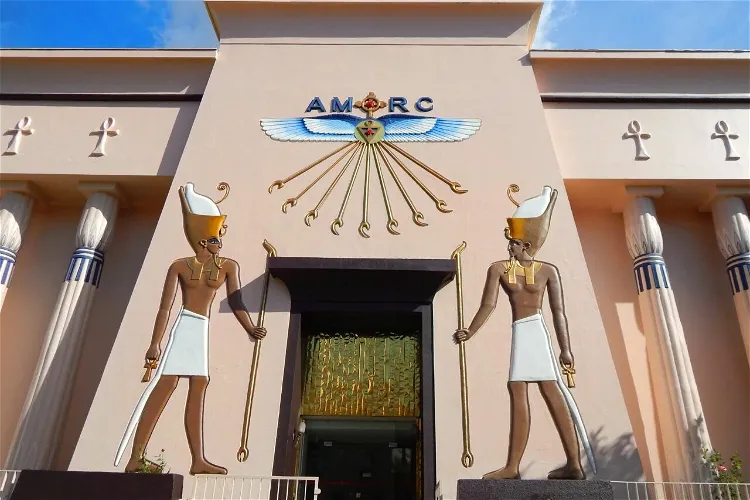
Museu Egípcio e Rosacruz
CuritibaThe Museu Egípcio e Rosacruz houses a collection mainly composed of replicas of Egyptian artifacts from various periods. One of the highlights of the collection is the mummy Tothmea, which was donated to the museum in 1987. This mummy is one of only two legitimate mummies from Egypt that are in Brazil.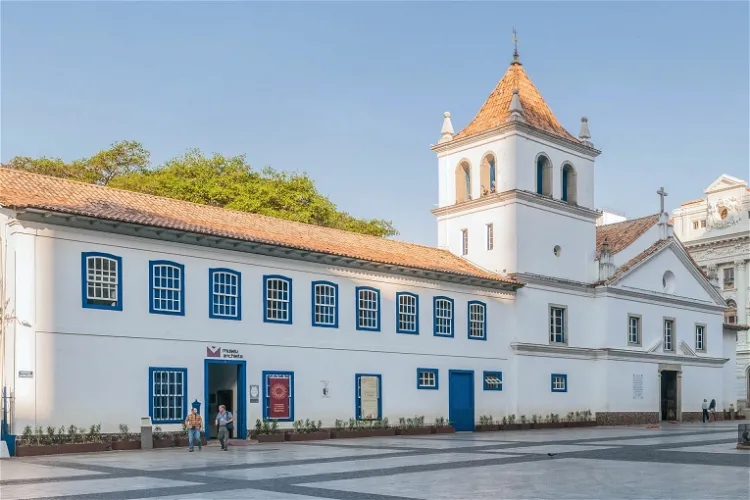
School Yard
São PauloPátio do Colégio, a historical Jesuit church and school, holds a significant place in the history of São Paulo, Brazil. It is the site where the city was founded back in 1554. The church and school have undergone various transformations over the centuries, reflecting the city's evolving history and culture.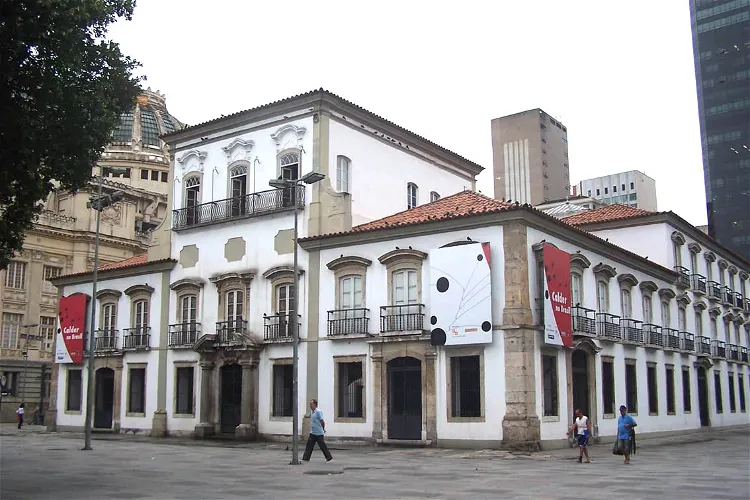
Imperial Palace
Rio de JaneiroThe Imperial Palace, also known as Paço Imperial, is a significant historical site located in the heart of Rio de Janeiro, Brazil. This Baroque colonial building stands as a testament to the city's rich history and architectural prowess. It was built in the 18th century and has served as the residence for governors, viceroys, King Juan VI, and emperors. Today, it is a cultural center, attracting visitors from around the world with its aesthetic appeal and historical significance.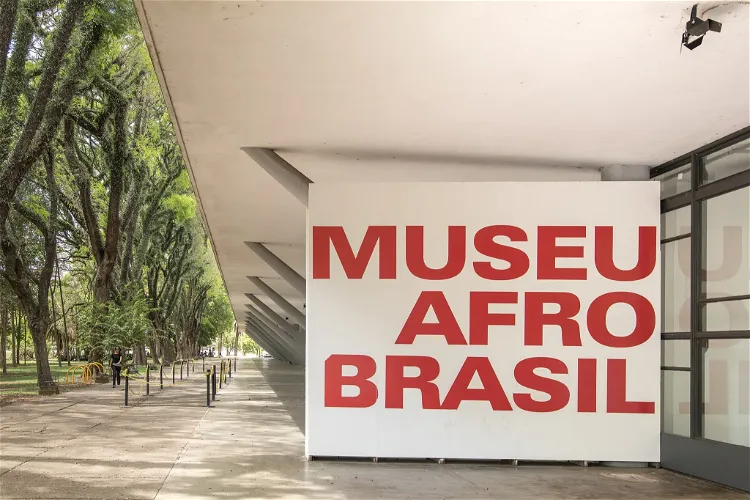
Afro Brasil Museum
São PauloThe Museu Afro Brasil is a historical, artistic, and ethnographic museum that is dedicated to the research, preservation, and exhibition of objects and works that are related to the cultural sphere of black people in Brazil. It is a public institution that is held by the Secretariat for Culture of the São Paulo State and is managed by the Museu Afro Brasil Association. The museum is located in Ibirapuera Park, a major urban park in São Paulo.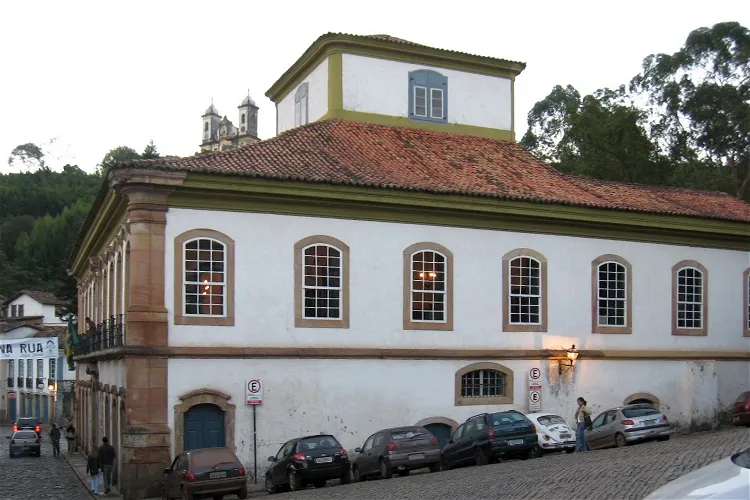
Museu Casa dos Contos
Ouro PretoCasa dos Contos is a museum situated in Ouro Preto, Minas Gerais, Brazil. It is a monument built in the Baroque style, reflecting the rich architectural heritage of the region. The primary objective of this museum is to preserve the history of the Gold Cycle - a significant period in Brazil's economic history. Additionally, it also serves to promote national culture, offering visitors a glimpse into the country's past.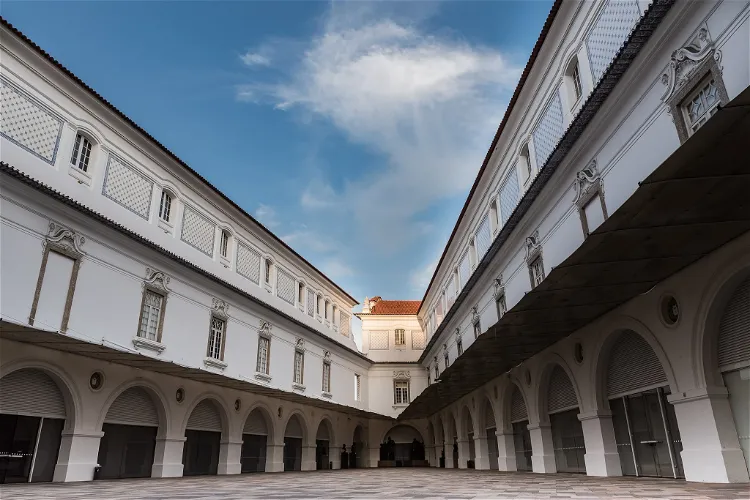
National History Museum
Rio de JaneiroThe National Historical Museum of Brazil, established in 1922, is home to over 287,000 items. This includes the largest numismatic collection in Latin America, making it a significant destination for those interested in history and numismatics. The museum's vast collection offers a comprehensive insight into Brazil's rich history and cultural heritage.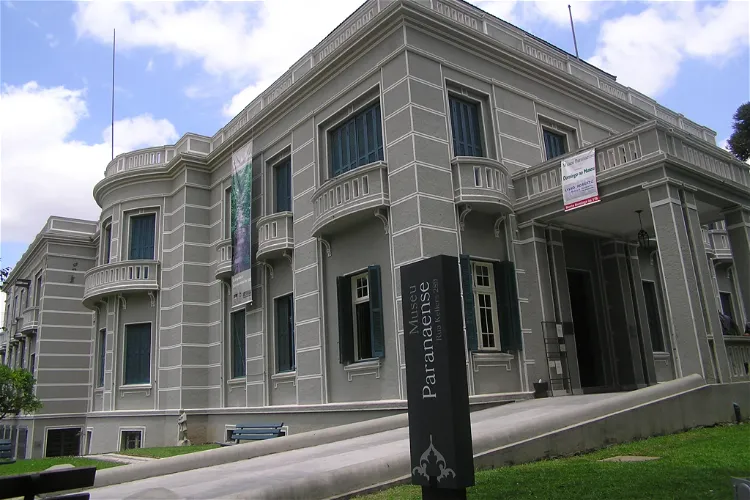
Museu Paranaense
CuritibaThe Museu Paranaense is housed in the São Francisco Palace, a sprawling space covering an area of 4,700 m². The museum not only showcases its historical collection in dedicated exhibition rooms but also hosts temporary exhibitions that delve into various historical and social contexts. Additionally, the museum is equipped with a library, an auditorium, a laboratory, and rooms for courses. It regularly conducts courses, lectures, workshops, and artistic presentations, offering a comprehensive cultural experience for visitors.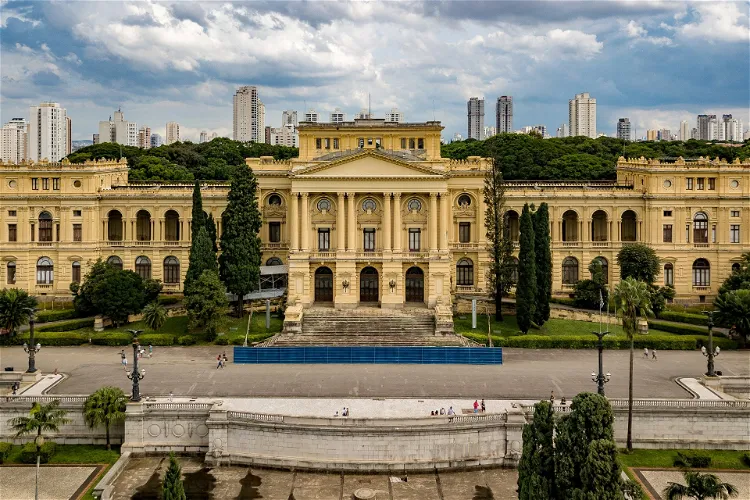
Paulista Museum
São PauloThe Museu Paulista, also known as Museu do Ipiranga, is a significant historical site in Brazil. It is located near the spot where Emperor Pedro I proclaimed Brazil's independence. This museum is part of the University of São Paulo and is a key location for understanding the country's history.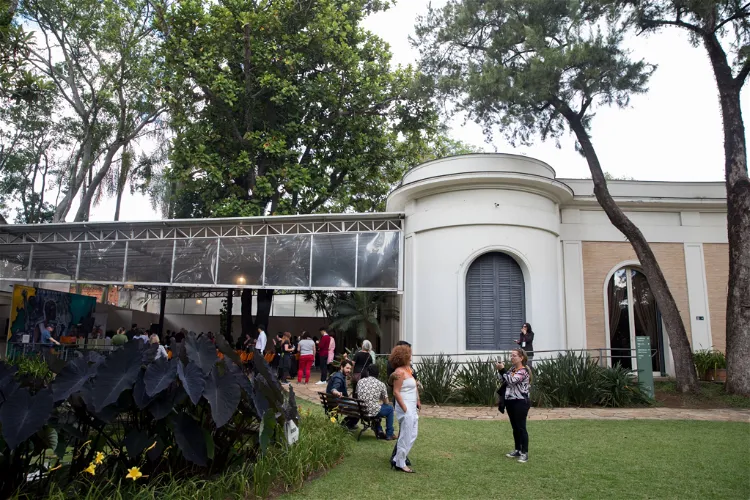
Ema Gordon Klabin Cultural Foundation
São PauloThe Ema Gordon Klabin Cultural Foundation, established in 1978, is an art museum located in the vibrant city of São Paulo, Brazil. This not-for-profit private institution was created by Brazilian collector and philanthropist Ema Gordon Klabin with the aim of preserving and showcasing her extensive art collection, as well as promoting cultural, artistic, and scientific activities.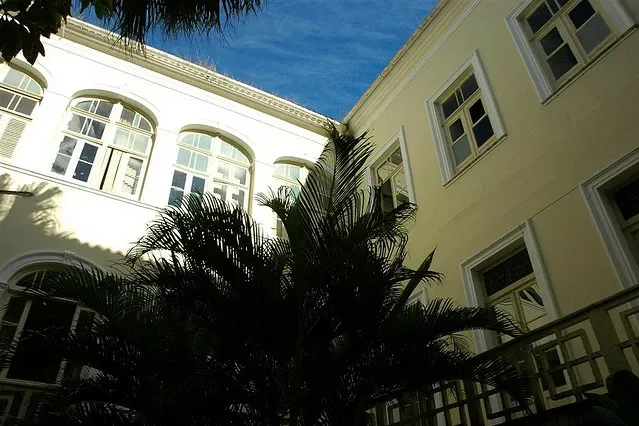
Museu de Arqueologia e Etnologia da Universidade Federal da Bahia
SalvadorThe Museu de Arqueologia e Etnologia (MAE) is situated in the vibrant city of Salvador. Specifically, it can be found at the Largo Terreiro de Jesus, housed within the building of the Faculty of Medicine of the Federal University of Bahia, in the historic district of Pelourinho. This location is not only central but also steeped in history, making it an interesting destination for tourists.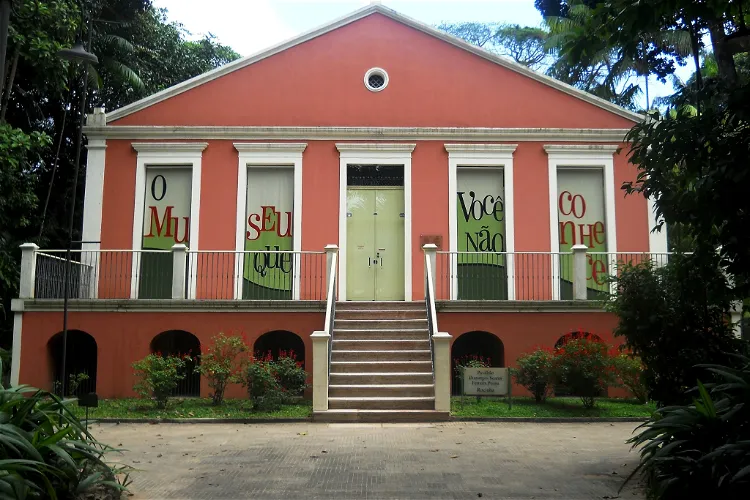
Museu Paraense Emílio Goeldi
BelémThe Museu Paraense Emílio Goeldi promotes science through various facilities. It houses a natural history museum, a botanical garden, and a zoological park. Additionally, the museum manages a scientific research station in the Amazon forest, known as the Estação Científica Ferreira Penna. These facilities offer a comprehensive insight into the biodiversity of the Amazon basin.
Museu do Homem do Nordeste
RecifeThe Museu do Homem do Nordeste is a Brazilian museum situated in Recife, the capital city of Pernambuco. This museum is a federal institution linked to the Joaquim Nabuco Foundation and the Ministry of Education. It offers a unique insight into the diverse cultures of the region, including black, indigenous, and white cultures, from their origins to their current forms and mixtures that make up what is generally referred to as Brazilian culture.
Mineiro Museum
Belo HorizonteThe Mineiro Museum, located in the city of Belo Horizonte, Minas Gerais, is a significant cultural institution in Brazil. It was inaugurated on May 10, 1982, at the site of the former Mineiro Senate. Today, it is part of the Cultural Circuit Praça da Liberdade project, which is a network of cultural institutions and attractions in the city.- 14
Ecomuseum of Itaipu
Foz do IguaçuThe Ecomuseum of Itaipu is situated in the city of Foz do Iguaçu, in the state of Paraná. The museum is managed by Itaipu Binacional, a bi-national company responsible for the Itaipu Dam. The museum's headquarters are located within the administrative area of the Itaipu Hydroelectric Power Plant. 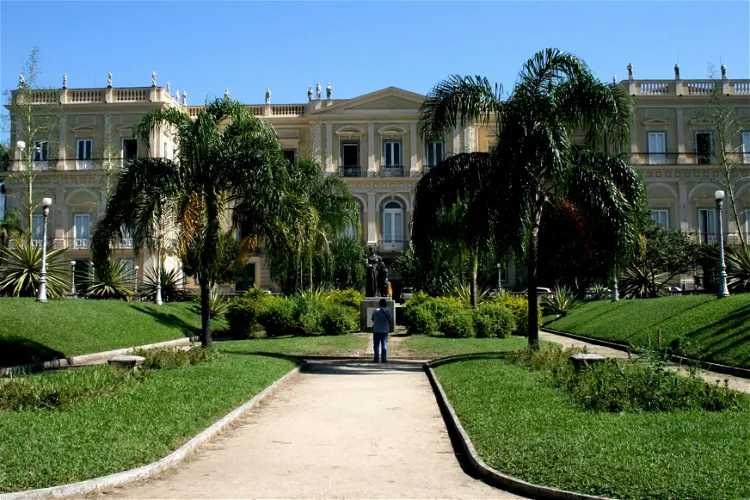
National Museum of Brazil
Rio de JaneiroThe National Museum, known as Museu Nacional in Portuguese, is situated in the Quinta da Boa Vista area of Rio de Janeiro, Brazil. The museum is under the administration of the Federal University of Rio de Janeiro (UFRJ), one of the country's leading educational institutions. This location offers a unique blend of cultural and educational experiences for visitors.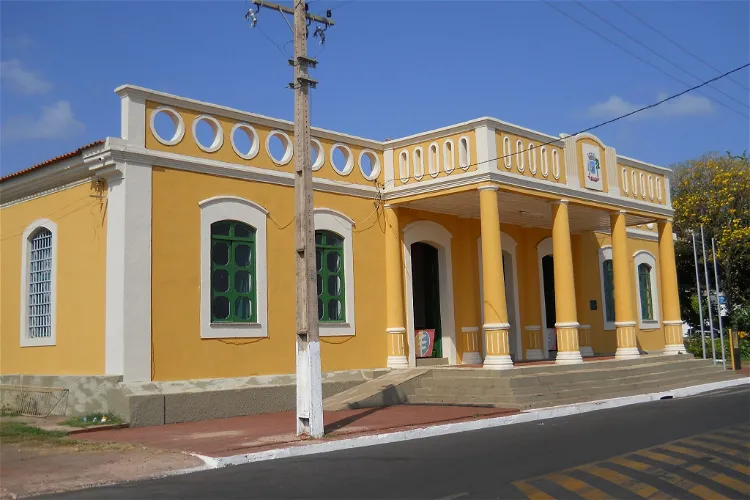
Museu João Fona
SantarémThe Museu João Fona, located in the city of Santarém in the state of Pará, is a historical building constructed between the years 1853 and 1868 by the engineer Marcos Pereira. This museum is the third oldest building in the city, adding to its historical significance.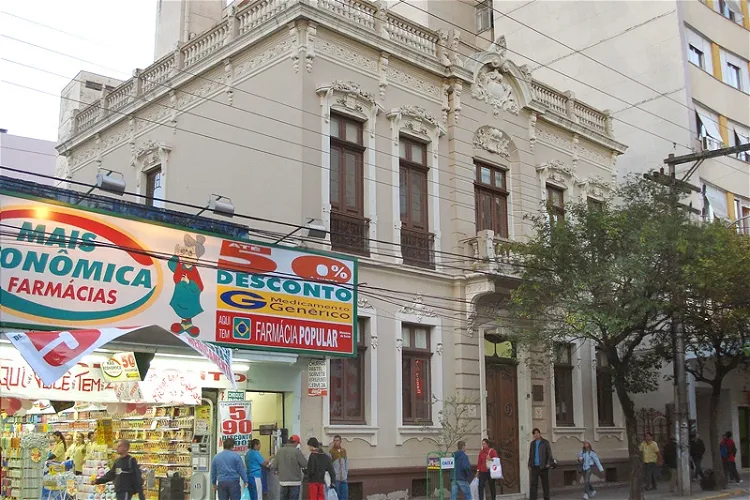
Educational Museum Gama D'Eça
Santa MariaThe Gama D'Eça Educational Museum is a significant cultural and educational institution in Brazil. It is affiliated with the Federal University of Santa Maria (UFSM) and is situated in the heart of Santa Maria, in the state of Rio Grande do Sul. The museum boasts a collection that is partially listed by the National Historical and Artistic Heritage Institute (IPHAN), indicating its cultural and historical significance.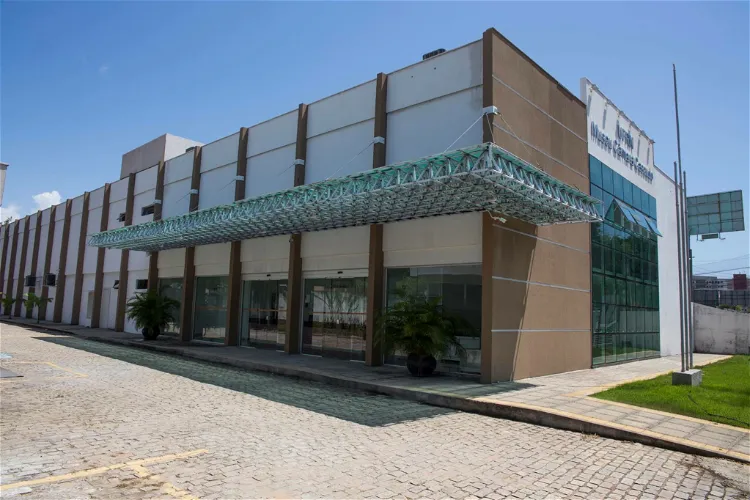
Museum Cascudo-UFRN
NatalA great museum for all those interested in natural sciences and anthropology. It presents many artifacts ranging from fossils to sugar cane.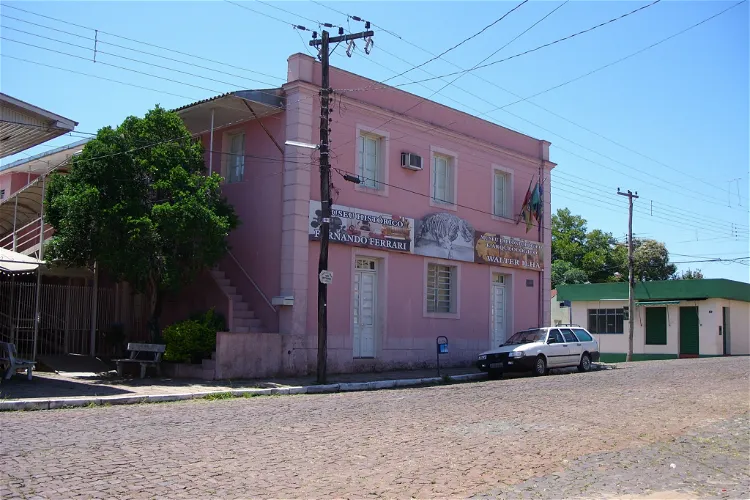
Paleontological and Archaeological Museum Walter Ilha
São Pedro do SulThe Walter Ilha Paleontological and Archaeological Museum is situated in São Pedro do Sul, Rio Grande do Sul, Brazil. Specifically, it is located at 164 Fernando Ferrari Street. This location is easily accessible and provides a great opportunity for tourists to explore the rich history and culture of the region.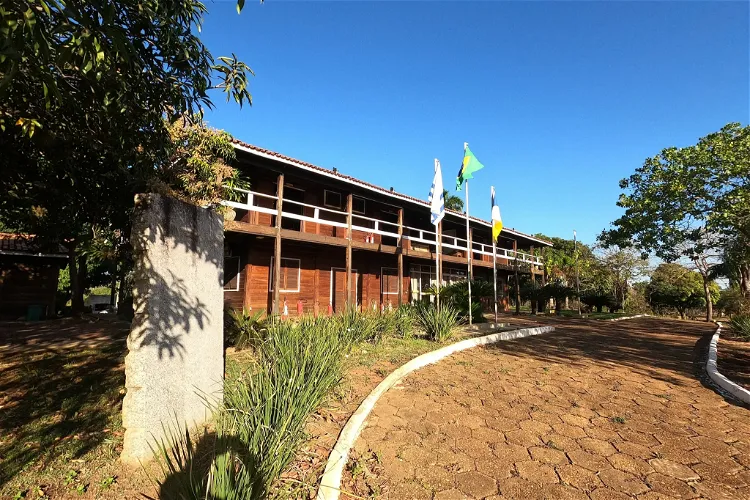
Tocantins History Museum
PalmasThe Tocantins Historical Museum is a state public museum situated in Palmas, the capital city of the state of Tocantins in Brazil. This museum is a significant cultural institution in the region, offering visitors a chance to delve into the rich history and heritage of Tocantins.- 21
Museu do Círio
BelémThe Museu do Círio houses a rich documentary collection that provides insight into the history of popular devotion surrounding the celebration of the Círio de Nossa Senhora de Nazaré. This event is the largest religious manifestation of the State of Pará and one of the largest in Brazil and the world. Celebrated since 1793 in the city of Belém do Pará, it is listed as Brazilian intangible cultural heritage. 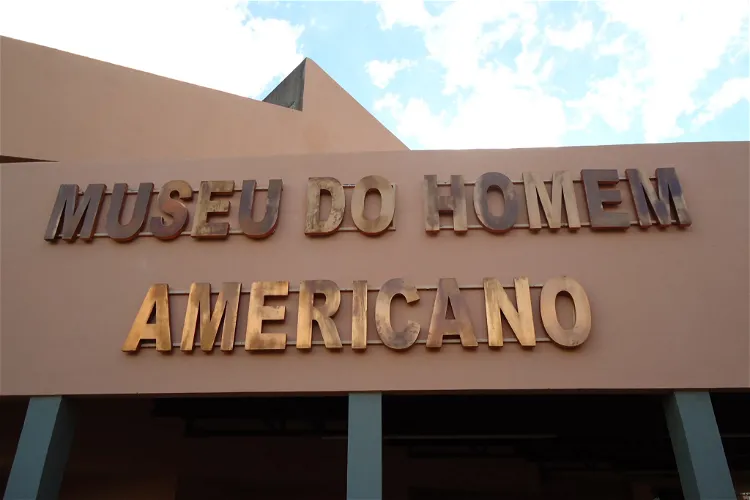
Museum of American Man
São Raimundo NonatoThe Museum of the American Man is a treasure trove of history, housing more than 700 archaeological sites. These sites contain paintings that date back to over 12,000 years ago, offering a glimpse into the ancient past. The museum's collection is regularly updated as new discoveries are made, ensuring that there is always something new to explore.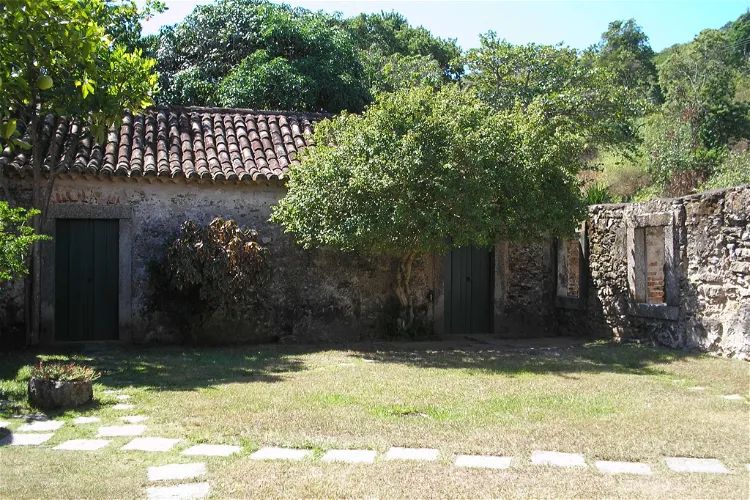
Archaeological Museum of Itaipu
NiteróiThe Archaeological Museum of Itaipu (MAI) is situated in the city of Itaipu, which is part of Niterói, in the state of Rio de Janeiro, Brazil. The museum is a unit linked to the Brazilian Institute of Museums, an organ of the Ministry of Culture. It started its activities on March 22, 1977.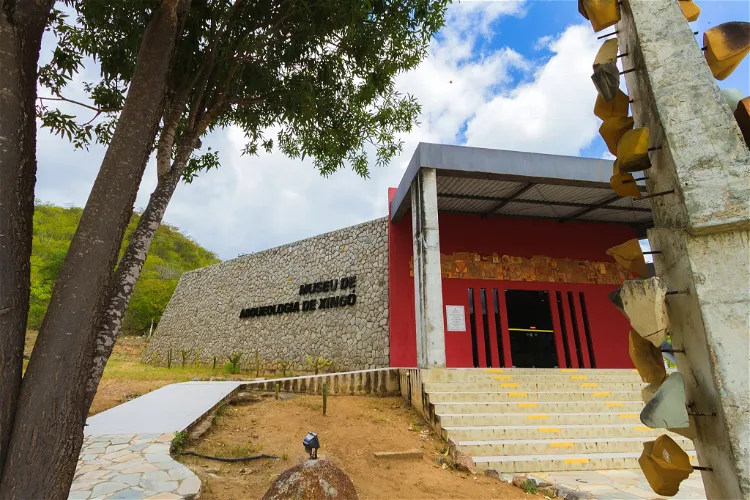
Archaeological Museum Xingó
Canindé de São FranciscoThe Xingó Archaeology Museum, also known as MAX, is situated in Canindé de São Francisco, a city in the Sergipe state of Brazil. The museum is under the administration of the Federal University of Sergipe, making it a significant center for archaeological research and preservation in the region.
Museu Histórico Municipal de Bauru
BauruThe Museu Histórico Municipal de Bauru is a repository of a wide range of items that reflect the history of Bauru. These include photos, newspapers, magazines, documents, texts, pieces of furniture, objects, machines, tools, and equipment. This diverse collection provides a comprehensive insight into the city's past, making it a valuable resource for those interested in understanding Bauru's history.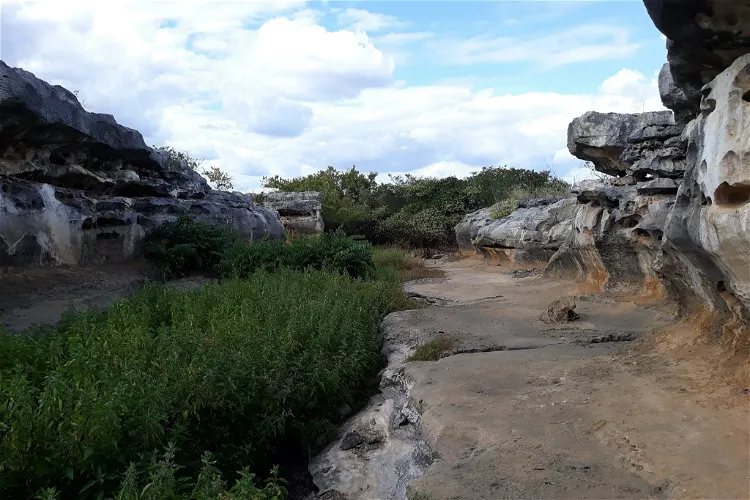
Sítio arqueológico Lajedo de Soledade
ApodiThe Lajedo de Soledade Archaeological Site is a significant landmark located in the Apodi Plateau, within the municipality of Apodi, in the state of Rio Grande do Norte. This site is notable for being the largest exposure of limestone rock in the Potiguar Basin, making it a unique geological feature in the region.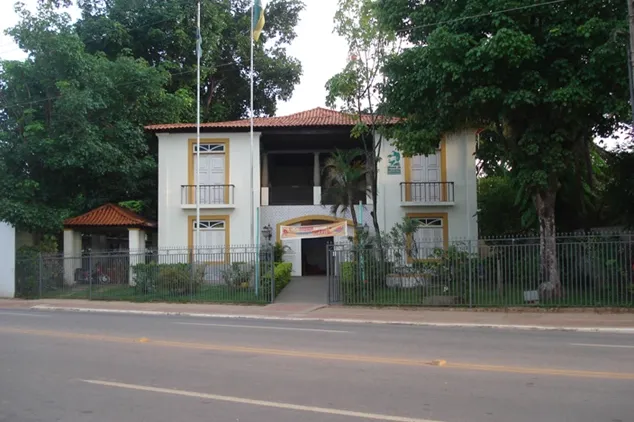
Museo del Caucho
Rio BrancoThe Museu da Borracha, or Rubber Museum, is situated in Rio Branco, the capital city of the Brazilian state of Acre. This museum is a public institution linked to the Elias Mansour Culture and Communication Foundation. It is a significant cultural and historical site that offers insights into the socio-economic history and material culture of Acre.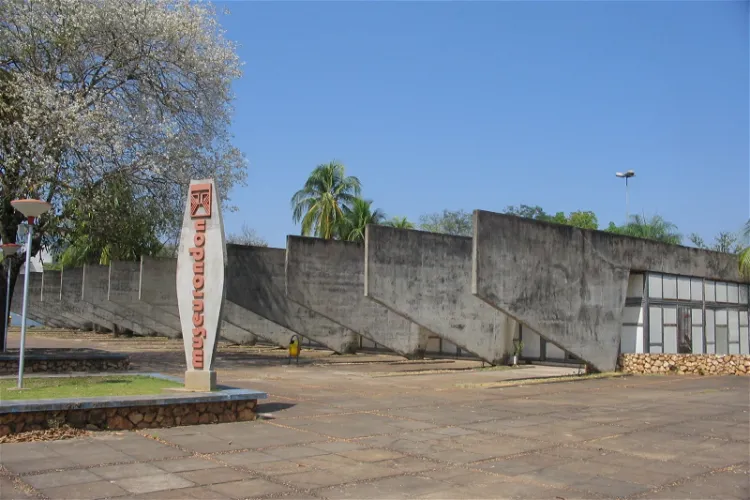
Museu Rondon
CuiabáThe Rondon Museum of Ethnology and Archaeology, located at the Federal University of Mato Grosso (MUSEAR/UFMT), is a non-profit university institution. Its primary focus is on research, teaching, and extension in the fields of Ethnology and Archaeology. This museum provides a unique opportunity for visitors to delve into these academic disciplines and gain a deeper understanding of the region's cultural and historical heritage.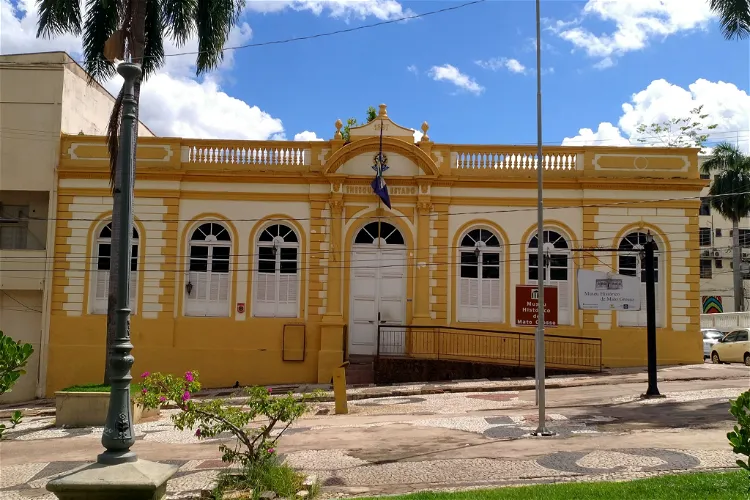
Mato Grosso History Museum
CuiabáThe Mato Grosso History Museum is situated in the city of Cuiabá. The building that houses the museum was originally constructed to serve as the Provincial Treasury of the State. This historical building adds to the charm and significance of the museum, making it a point of interest for tourists visiting the city.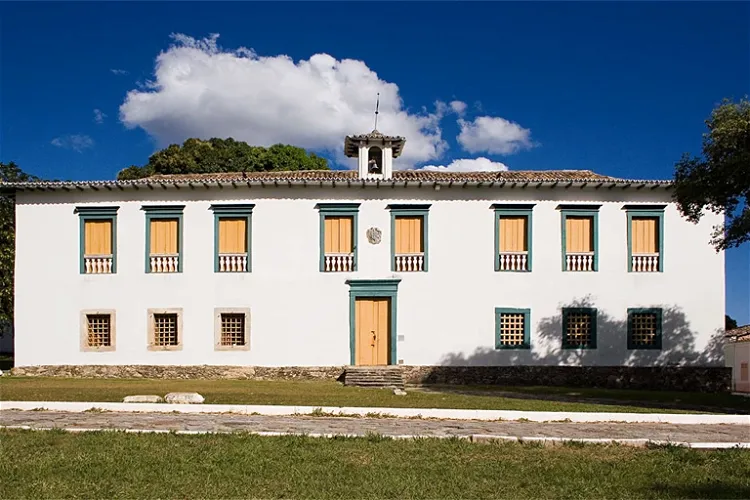
Museu das Bandeiras
GoiásThe Museu das Bandeiras is situated in the City of Goiás, which is approximately 128 kilometers away from Goiânia, the capital of the state of Goiás. This location makes it a feasible day trip for those staying in the capital city.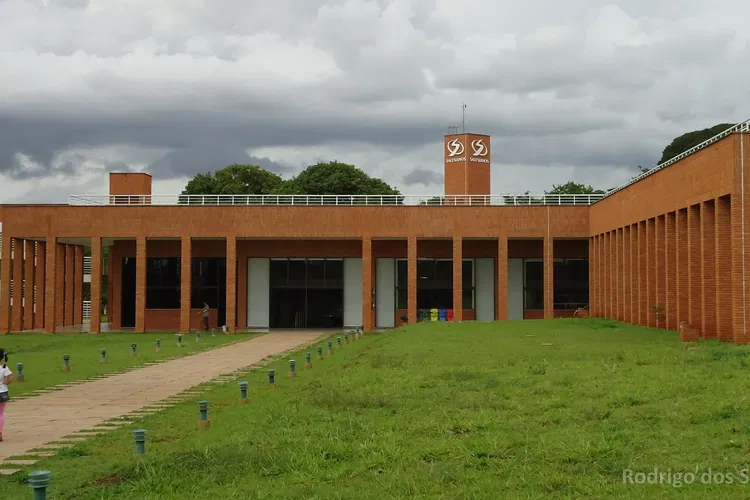
Museu das Culturas Dom Bosco
Campo GrandeThe Museu das Culturas Dom Bosco, also known as the Museu do Índio, is a renowned Brazilian museum situated in Campo Grande, Mato Grosso do Sul. The museum was established in the year 1950 and was officially inaugurated on the 27th of October, 1951 by Salesian priests. It is a significant cultural and historical landmark in the region.
Goiano Museum Zoroastro Artiaga Teacher
GoiâniaThe Zoroastro Artiaga Museum, located in Goiânia, Brazil, is a cultural institution founded in 1946. The museum's collection includes historical documents, ancient utensils, objects related to the Central Brazilian Indians, and artistic pieces. These diverse collections provide a comprehensive insight into the region's rich history and culture.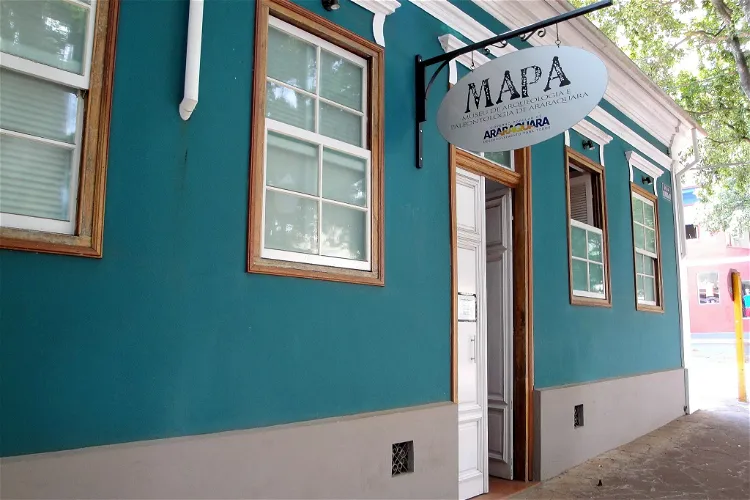
Museu de Arqueologia e Paleontologia de Araraquara
AraraquaraThe Museu de Arqueologia e Paleontologia de Araraquara (MAPA) is an educational and scientific institution situated in the city of Araraquara. It offers a unique opportunity for visitors to delve into the world of archaeology and paleontology, providing a rich and informative experience.- 34
Museu Histórico Farroupilha
PiratiniThe Farroupilha Historical Museum, located in the city of Piratini in Rio Grande do Sul, Brazil, was established on February 11, 1953, during the tenure of Ernesto Dornelles. This museum is a significant cultural institution that provides insights into the rich history of the region. 
Parque Estadual Vila Rica do Espírito Santo
FênixThe main attraction of the Parque Estadual de Vila Rica do Espírito Santo is the ruins of Villa Rica del Espiritu Santo. These ruins were declared a state historical heritage in 1948. The site offers a glimpse into the past, allowing visitors to explore the remnants of a once thriving settlement.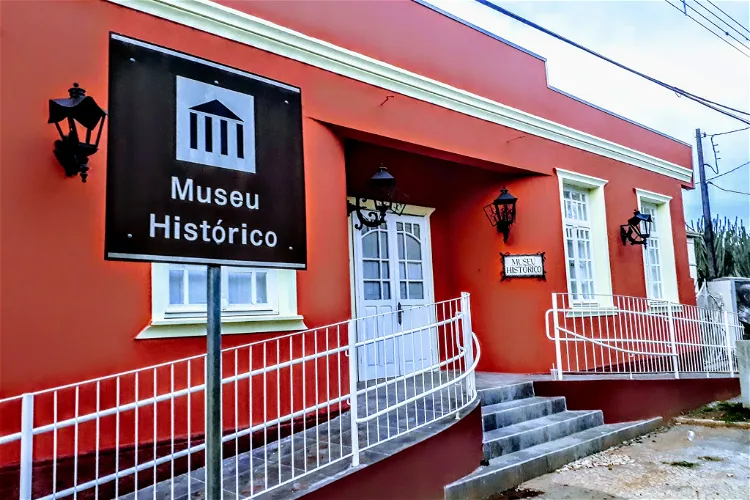
Museu Histórico Desembargador Edmundo Mercer Júnior
TibagiThe Museu Histórico Desembargador Edmundo Mercer Júnior, also known as the Museu do Garimpo, is a historical museum located in the municipality of Tibagi, in the state of Paraná. The museum's primary objective is to disseminate the history of the municipality and the mining activity in the region. It also contributes to historical and documentary studies and research, making it a valuable resource for those interested in the history of the region.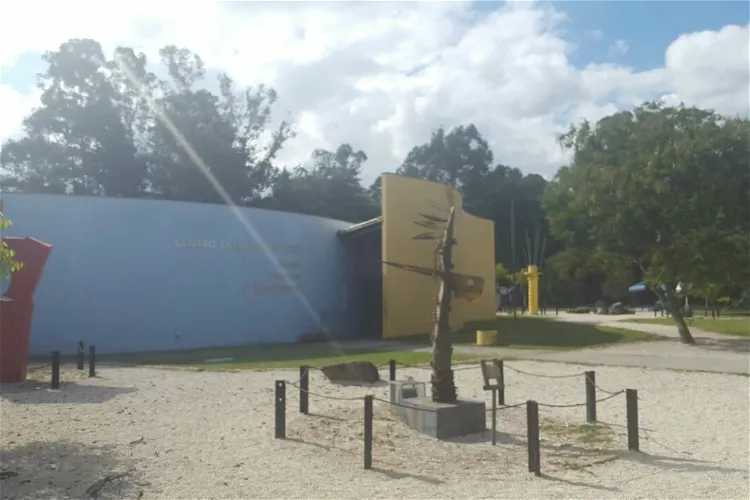
Museu do Tietê
São PauloThe Tietê Museum narrates the story of one of São Paulo's most significant rivers, the Tietê River. This is done through a variety of mediums including documents, objects from the region's indigenous culture, and photographs. Visitors can gain a deeper understanding of the river's history and its impact on the city and its people.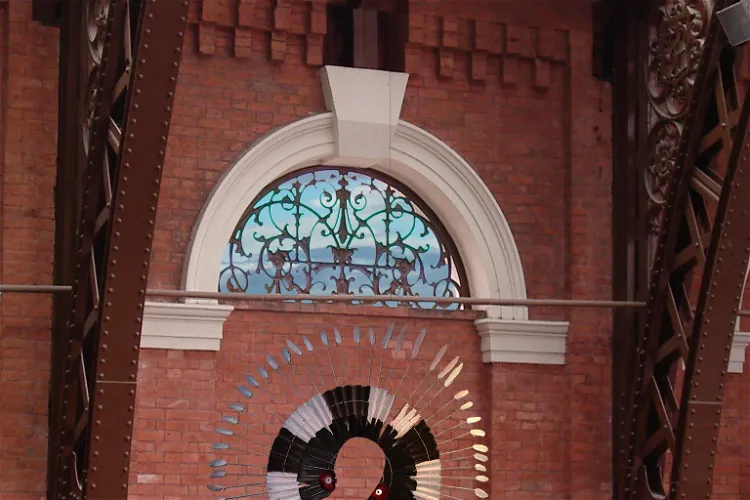
Museum of Archeology and Ethnology
São PauloThe Museum of Archeology and Ethnology is a part of the University of São Paulo. It is situated within the University City Armando de Salles Oliveira. The museum is located in the city of São Paulo, making it easily accessible for tourists visiting the city.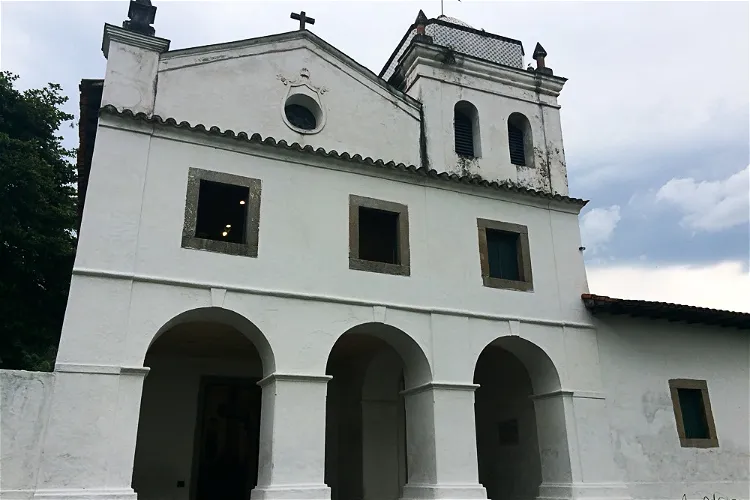
MASS - Sacred Art Museum Santos
SantosThe Sacred Art Museum of Santos is recognized as the second most important museum of its kind in the State of São Paulo. It features ten thematic spaces, each organized in line with the activities of the old rooms of the Monastery. This layout provides a unique and immersive experience for visitors.
Museu Arqueológico de Sambaqui de Joinville
JoinvilleThe Museu Arqueológico de Sambaqui de Joinville (MASJ) is a museum situated in the city of Joinville, in the Brazilian state of Santa Catarina. It is a significant cultural and historical site that offers visitors a unique insight into the region's past.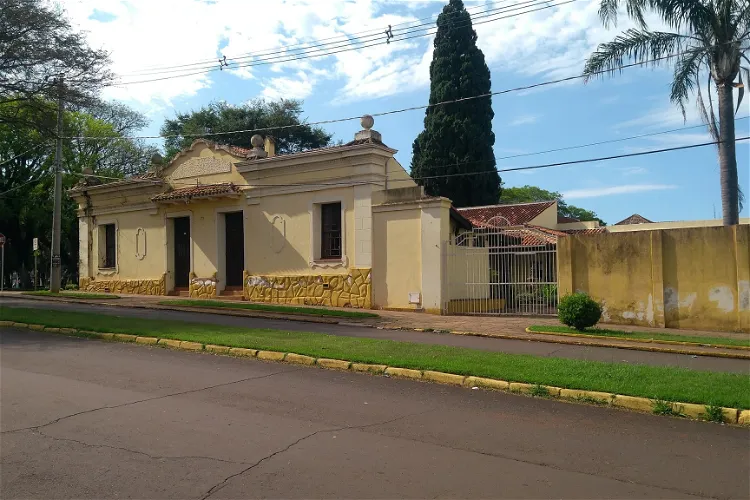
Museu Municipal Dr. José Olavo Machado
Santo ÂngeloThe Museu Municipal Dr. José Olavo Machado is a significant cultural institution in the city of Santo Ângelo. It is conveniently located in the historic center of the city, making it easily accessible for tourists. The museum's proximity to other notable landmarks such as the City Hall and the Angelopolitana Cathedral further enhances its appeal to visitors.
Museu de Arte Sacra de Rio Pardo
Rio PardoThe Museu de Arte Sacra de Rio Pardo is a private museum situated in the São Francisco chapel in the city of Rio Pardo, in the state of Rio Grande do Sul, Brazil. The museum is located at São Francisco Street nº 277 and is maintained by the Associação Zeladora Capela São Francisco. This museum is a significant cultural and historical site in the region.
Museu da Cidade (Manaus)
ManausThe Museu da Cidade de Manaus, or the City Museum of Manaus, is a Brazilian museum situated in the heart of Manaus, the capital city of the Amazonas state. This museum offers a unique opportunity to delve into the rich history and culture of the region.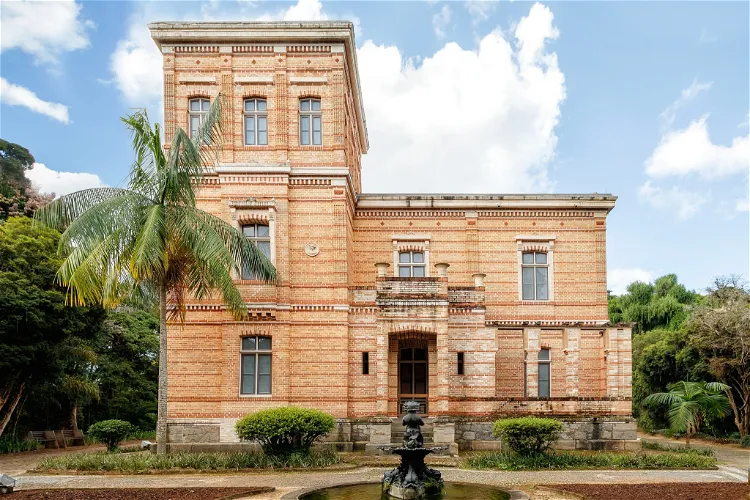
Mariano Procópio Museum
Juiz de ForaThe Mariano Procópio Museum, located in Juiz de Fora, Minas Gerais, Brazil, is a museum that showcases art, history, and natural sciences. It offers a diverse range of exhibits that cater to different interests, making it a versatile destination for tourists.
Museu Dom José
SobralThe Museu Diocesano Dom José, also known as Museu Dom José, is a museum situated in the city of Sobral, in the state of Ceará, Brazil. This museum is a significant cultural institution in the region, attracting a diverse range of visitors.
Museu Histórico Jacinto de Sousa
QuixadáThe Museu Histórico Jacinto de Sousa is situated in the city of Quixadá, in the state of Ceará. This location makes it easily accessible for tourists visiting the region, offering them a chance to delve into the rich history of the area.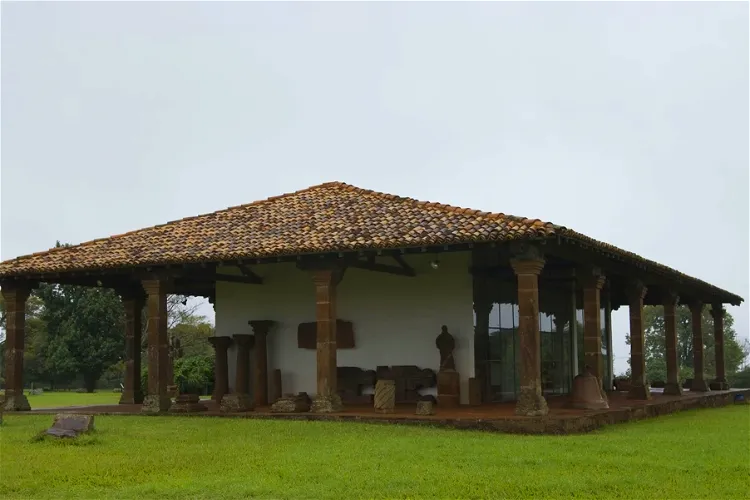
Museum of the Missions
São Miguel das MissõesThe Mission Museum, known in Portuguese as Museu das Missões, is a historical site located in São Miguel das Missões, Rio Grande do Sul, Brazil. The museum is situated amidst the ruins of São Miguel das Missões, a Jesuit reduction that includes the Church of São Miguel Arcanjo and other surrounding ruins. This location offers visitors a unique opportunity to explore both the museum and the historical ruins in one visit.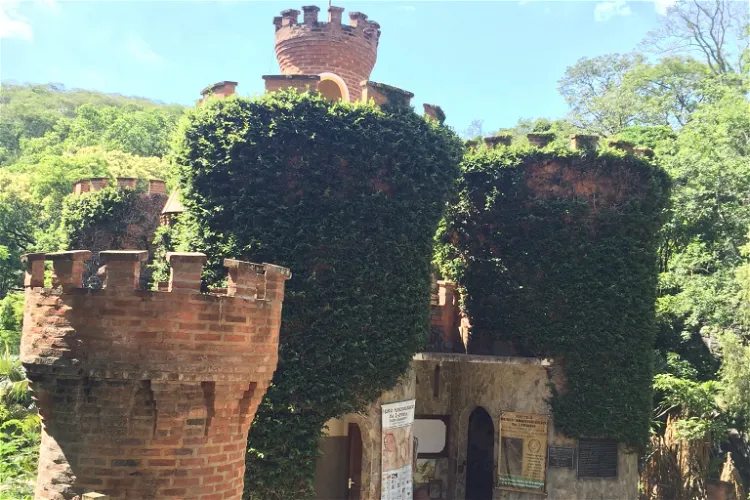
Museu Arqueológico da Lapinha
Lagoa SantaThe Lapinha Archaeological Museum, situated in the Brazilian municipality of Lagoa Santa, in Minas Gerais, provides visitors with insights into paleontology and archaeology. This museum is an excellent destination for those interested in learning about ancient civilizations and the history of the region.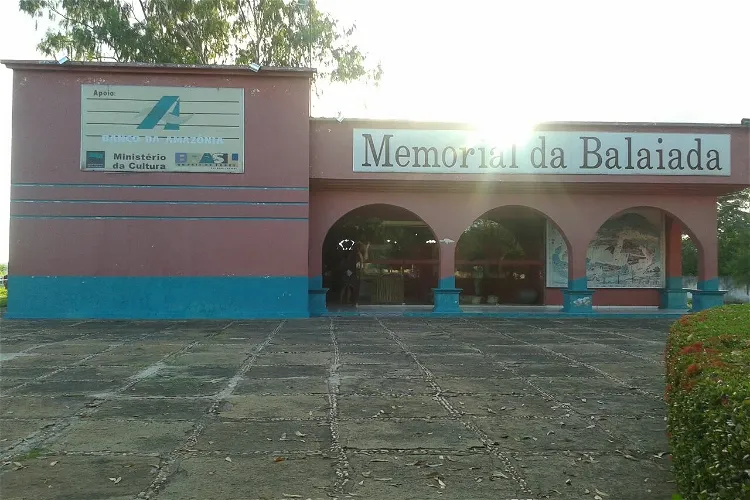
Memorial da Balaiada
CaxiasThe Memorial da Balaiada, located in the city of Caxias, is an educational-cultural center that was inaugurated on June 26, 2004. It is composed of a Museum and a Documentation Center and is situated 365 km from São Luís.
Museu Major Novaes
CruzeiroThe Museu Major Novaes is a public cultural institution situated in Cruzeiro, a city in the state of São Paulo, Brazil. It is maintained by both the state and municipal public authorities, ensuring its preservation and operation. This museum is a significant part of the cultural landscape of Cruzeiro, offering visitors a chance to delve into the rich history and heritage of the region.
Museu do Homem do Sambaqui
FlorianópolisThe Museu do Homem do Sambaqui, located in Brazil, is a museum that is primarily dedicated to preserving the natural and cultural history of the region. It showcases a variety of exhibitions that include native animals and human artifacts. These exhibits provide a unique insight into the rich history and biodiversity of the region.
Museu de Valores do Banco Central
BrasíliaThe Museu de Valores do Banco Central, located in Brasília, the Federal District of Brazil, is home to two distinct collections. The numismatic collection comprises banknotes, coins, and other printed values, gold bars, medals, and numismatic curiosities related to money and its manufacturing technology. The artistic collection encompasses 554 works, including paintings, drawings, engravings, and sculptures, primarily from Brazilian artists associated with modernism.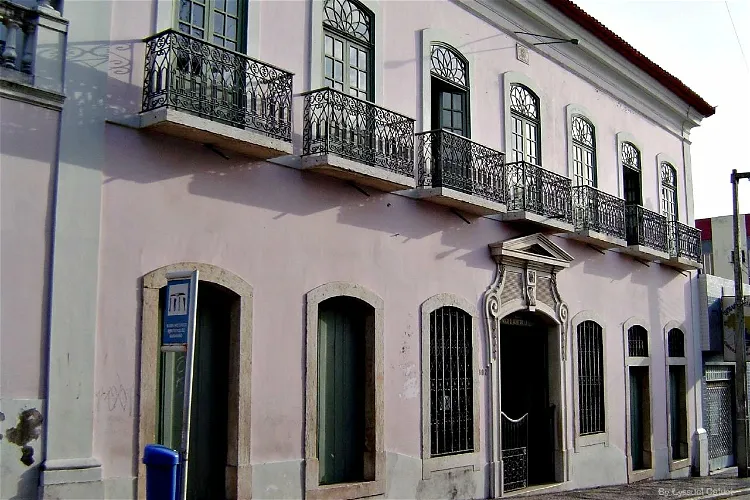
Museu Histórico e Artístico do Maranhão
São LuísThe Museu Histórico e Artístico do Maranhão (MHAM) is a public institution situated in São Luís, within the Solar Gomes de Souza. The museum's mission is to safeguard, promote, and disseminate the cultural heritage of the state, making it a significant location for those interested in understanding the region's history and culture.- 54
Museu de Arte Indígena
CuritibaThe Museu de Arte Indígena (MAI) is a unique cultural institution located in Curitiba, Paraná. It holds the distinction of being the first private museum in Brazil that is dedicated solely to the artistic production of Brazilian indigenous people. This focus makes it a unique destination for those interested in indigenous art and culture. - 55
Museu Aracy Paraguassú
ItaitubaThe Museu Municipal Aracy Paraguaçu, also known as the Aracy Paraguassú Municipal Museum, is a historical museum located in the city of Itaituba, Pará, Brazil. It was formally established on October 18, 2006, although it had been operational since 1993. The museum was an initiative of Professor Regina Lucirene Macedo de Oliveira, whose family kept documentary records of the history of the municipality of Itaituba. - 56
Museu Ruy Menezes
BarretosThe Ruy Menezes Historical, Artistic and Folkloric Museum is located in the city of Barretos, São Paulo. It plays a crucial role in preserving the city's memory by housing important documents and objects from the city's history. This museum provides a unique opportunity for visitors to delve into the rich history and culture of Barretos. - 57
Museu de Ciências Naturais da Ulbra
CanoasThe Museu de Ciências Naturais da ULBRA, located on the Canoas Campus of ULBRA in Rio Grande do Sul, is a natural science museum. Its mission is not only to provide a leisurely experience but also to raise awareness about the preservation of fauna and flora. This is achieved through environmental education, making it a unique destination for those interested in nature and conservation. - 58
Museu Arqueológico do Rio Grande do Sul
TaquaraThe Museu Arqueológico do Rio Grande do Sul, also known as MARSUL, is a Brazilian museum situated in the city of Taquara, in the state of Rio Grande do Sul. The museum was officially established on August 12, 1966, and has since been a significant site for archaeological research and preservation. - 59
Jewish Museum
Rio de JaneiroThe Jewish Museum of Rio de Janeiro, established in 1977, serves as a cultural hub dedicated to the preservation of Jewish memory and culture. It is a place where visitors can learn about the history and traditions of Judaism in all its aspects -- religious, cultural, and historical. The museum's mission is to keep alive the memory of the Jewish community in Rio de Janeiro and to promote understanding of Jewish culture and history. 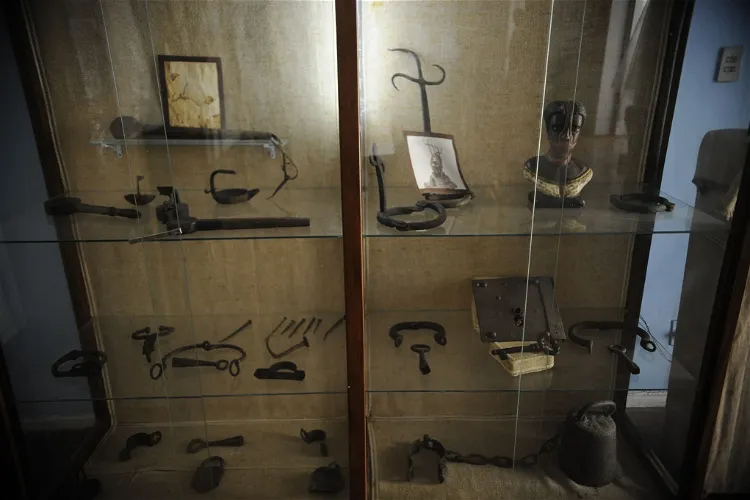
Museu do Negro
São LuísThe Museu do Negro, located in Rio de Janeiro, is a museum dedicated to the history of black people in Brazil. It particularly focuses on aspects related to religion. This museum provides a unique opportunity for visitors to delve into the rich and diverse history of black people in Brazil, with a special emphasis on their religious practices and beliefs.- 61
Museum Bi Moreira
LavrasThe Museu Bi Moreira is a historical museum situated on the historic campus of the Federal University of Lavras. It was officially founded on September 9, 1983. The museum's location within the university campus adds to its historical significance and provides a unique setting for visitors. - 62
Anthropology Museum of the Paraíba Valley
JacareíThe Anthropology Museum of the Paraíba Valley is situated at 143 Quinze de Novembro Street, in the heart of Jacareí. It is housed in a listed historical building known as Solar Gomes Leitão. This location not only provides easy access for visitors but also adds a historical charm to the museum experience. - 63
Museu Etno-Arqueológico
ItajaíThe Museu Etno-Arqueológico de Itajaí, located in Itajaí, is a museum that focuses on the prehistoric archaeology of the sambaqui and the rural ethnography of the lower Itajaí-Mirim River Valley, in the northern coast of Santa Catarina. This museum provides a unique opportunity for visitors to delve into the prehistoric and rural cultural aspects of the region. - 64
Museu Paleoarqueológico e Histórico Prefeito Bertoldo Jacobsen
TaióThe Museu Paleoarqueológico e Histórico Prefeito Bertoldo Jacobsen is a Brazilian institution dedicated to the preservation and promotion of the cultural heritage of Taió, a municipality in Santa Catarina. The museum was inaugurated on December 18, 2004, and is named in honor of the first mayor of the municipality. It focuses on themes of paleontology, archaeology, and local history.